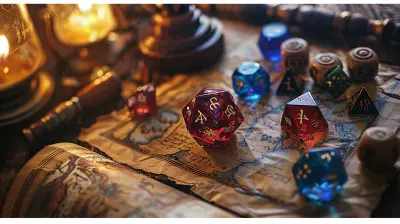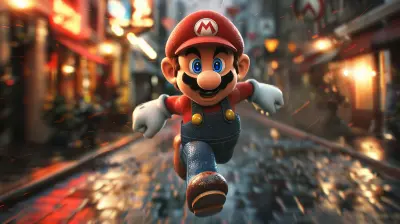Why Animal Crossing Became a Cultural Phenomenon
4 October 2025
If there’s one game that quietly stepped in, took our hand, and led us into a world of simplicity, community, and cuteness—it’s Animal Crossing. And let’s be real, when the world paused during the pandemic, Animal Crossing: New Horizons hit different. It wasn’t just a game anymore; it was a lifeline, a social space, and a digital sanctuary when everything outside felt like chaos.
So, let’s take a deep dive into why Animal Crossing didn’t just succeed—it became a cultural phenomenon.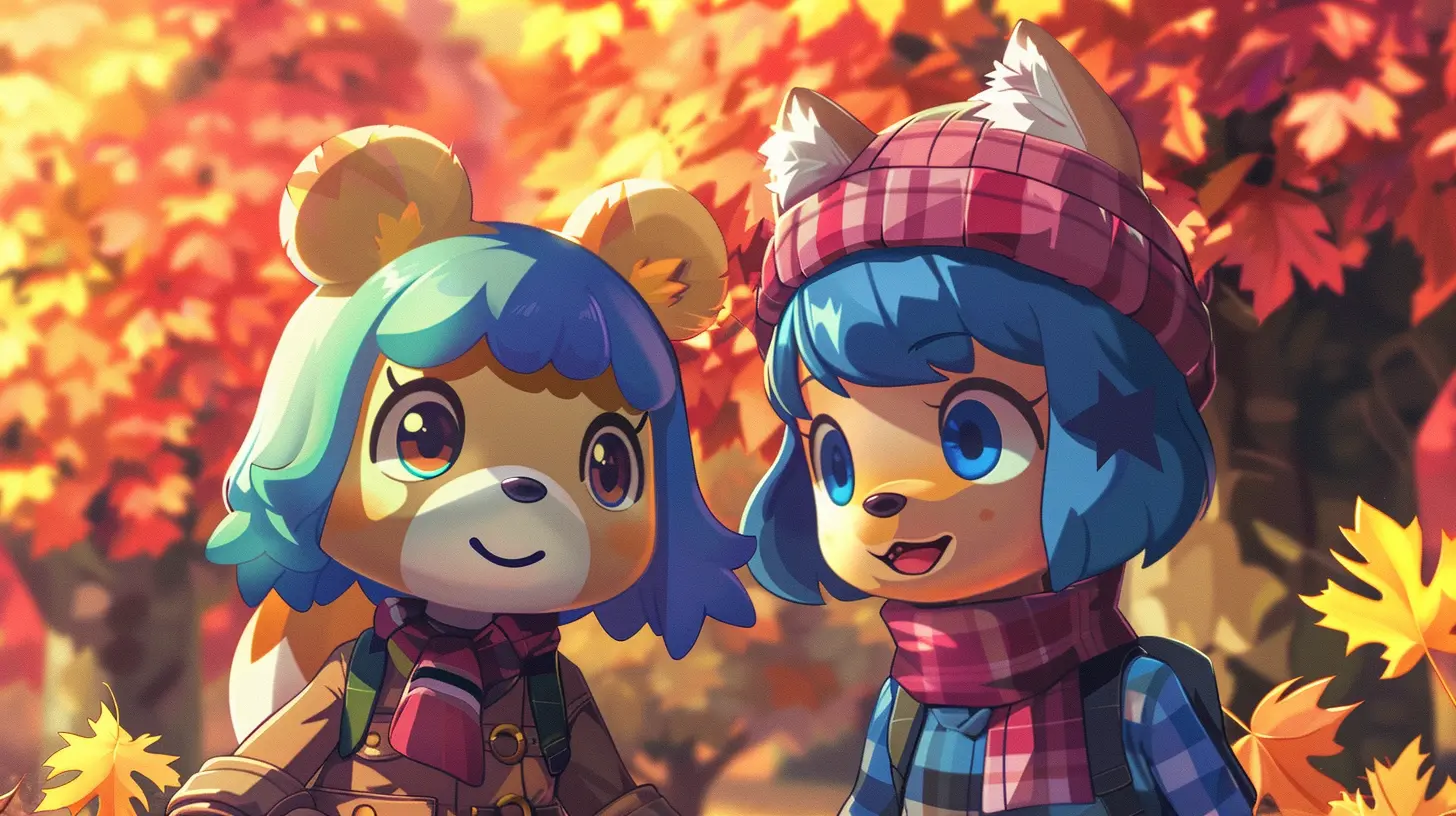
A Brief Look at Animal Crossing’s Humble Beginnings
Alright, quick throwback. The original Animal Crossing launched in 2001 for the Nintendo 64 in Japan (later moved to the GameCube globally). It wasn’t flashy. It didn’t have action or high-stakes missions. It was… chill. You played as a human moving to a village full of talking animals. That’s it. No major goals. No pressure. Just… living.And that odd little setup? It turned out to be revolutionary.
Over the years, Nintendo stuck with the core formula while polishing the visuals, adding online play, and stacking it with charm. Wild World, City Folk, New Leaf—every entry added some magic. But everything exploded with Animal Crossing: New Horizons.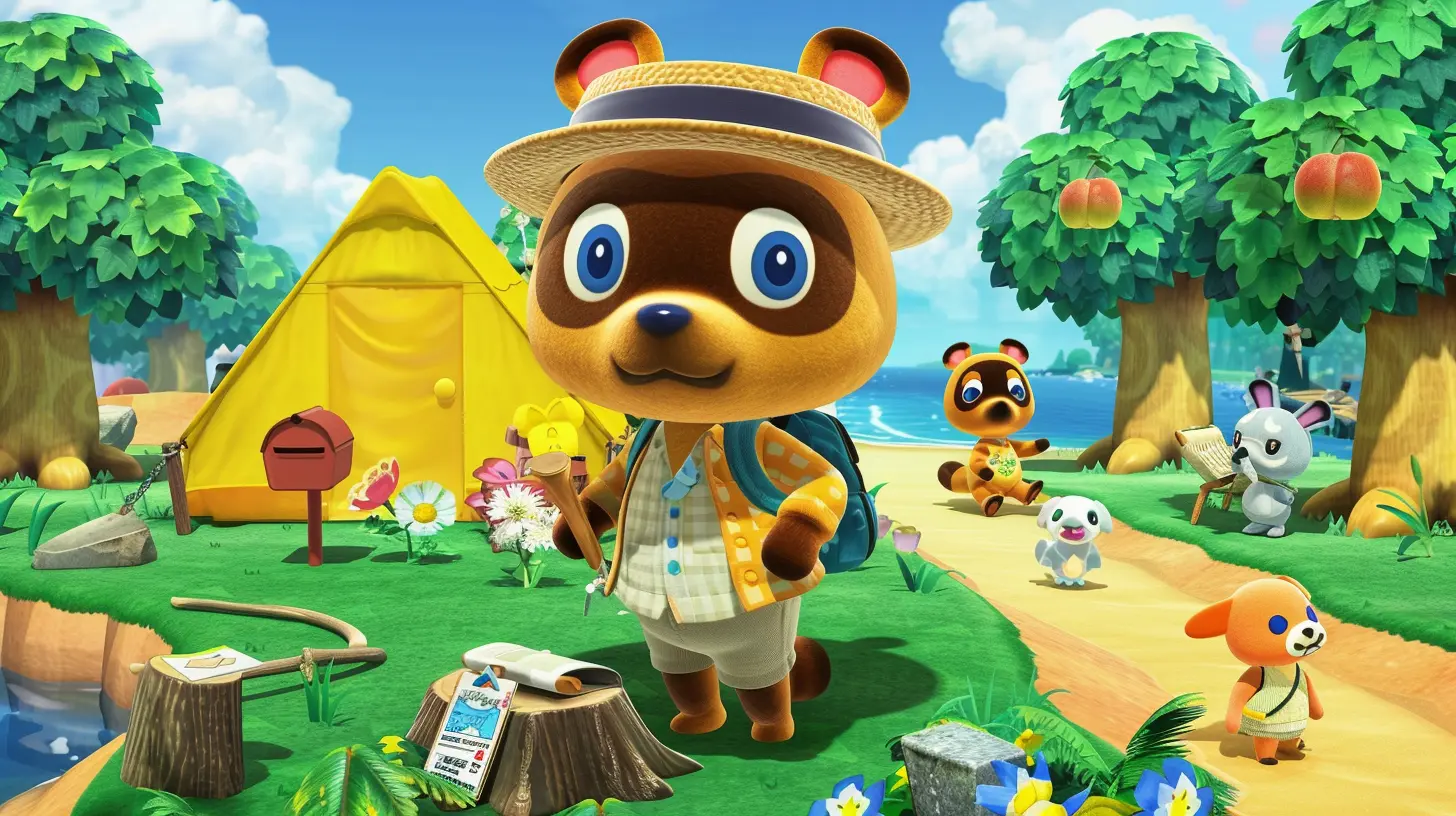
Timing Truly Is Everything
Let's get real—Animal Crossing: New Horizons launched in March 2020. Yep, right as the pandemic had the world locking down, wiping shelves clean of toilet paper, and leaving many of us stuck at home.People were overwhelmed, isolated, and anxious. Enter a game that lets you build a cozy home, fish by a sparkling sea, grow flowers, and visit your best friend's island. No stress. No timers. Just good vibes.
That timing? It wasn’t planned, but it was perfect. AC:NH became the social media darling. Screenshots of pastel-colored rooms, turnip prices, and dapperly dressed villagers flooded Instagram and Twitter. It was hard not to get curious.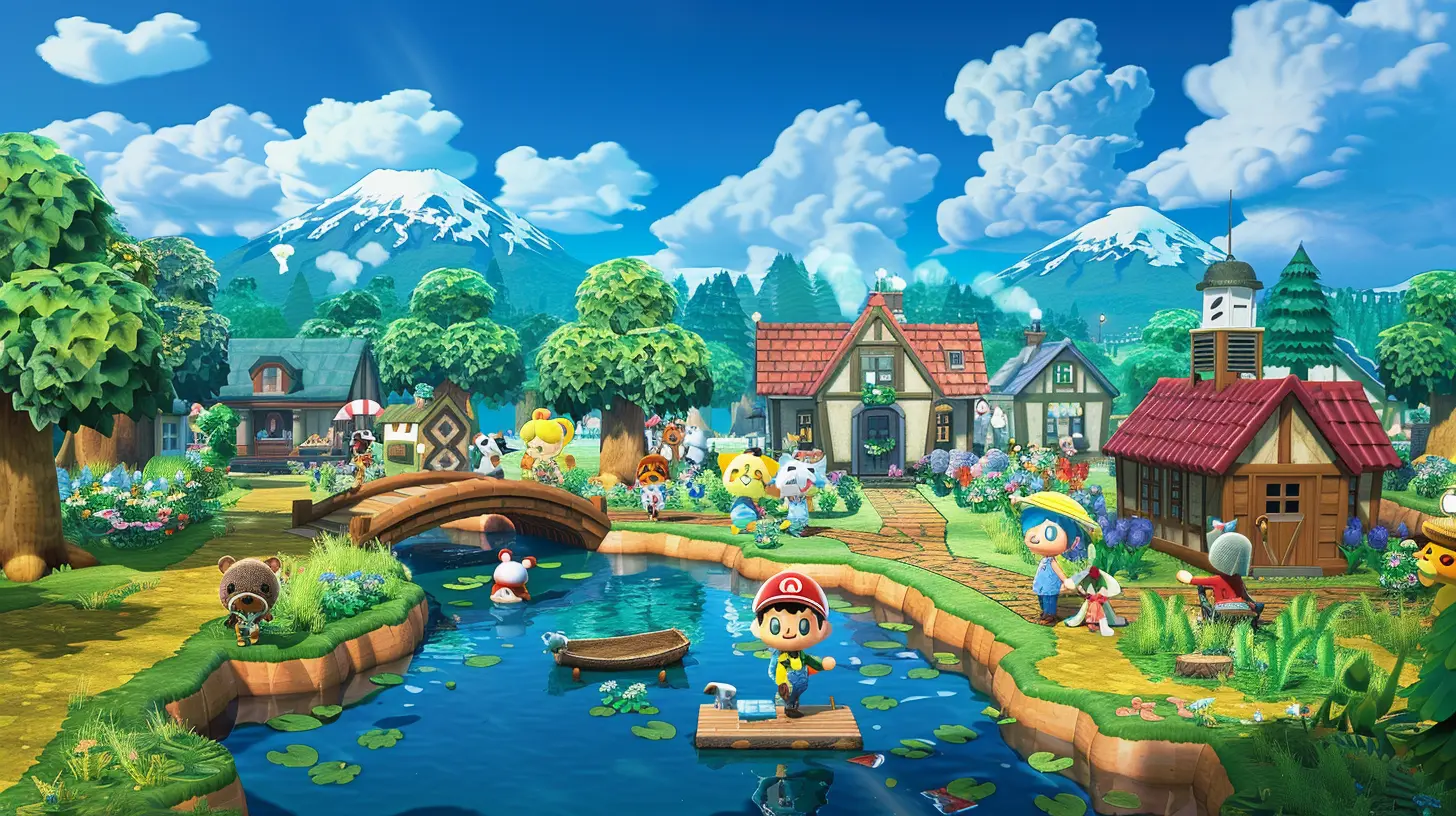
A Virtual Escape With Real-World Benefits
Imagine this: Outside, things are uncertain. But inside your Switch? It's Saturday, K.K. Slider is strumming his tunes, and your hybrid tulips are finally blooming. Bliss.What made Animal Crossing feel so essential was that it allowed players to:
- Control the uncontrollable
- Socialize safely
- Express creativity
- Unplug without withdrawal
A Place Where Control Feels Comforting
In real life, let’s face it, things get hectic. But in Animal Crossing? You run the show. You decide where every tree goes. You choose your island's layout. Want to make a cafe out of your house? Go for it. Dreaming of a zen garden filled with bamboo and waterfalls? You do you.That sense of autonomy in a stress-free environment is deeply comforting, especially during times when we're powerless elsewhere.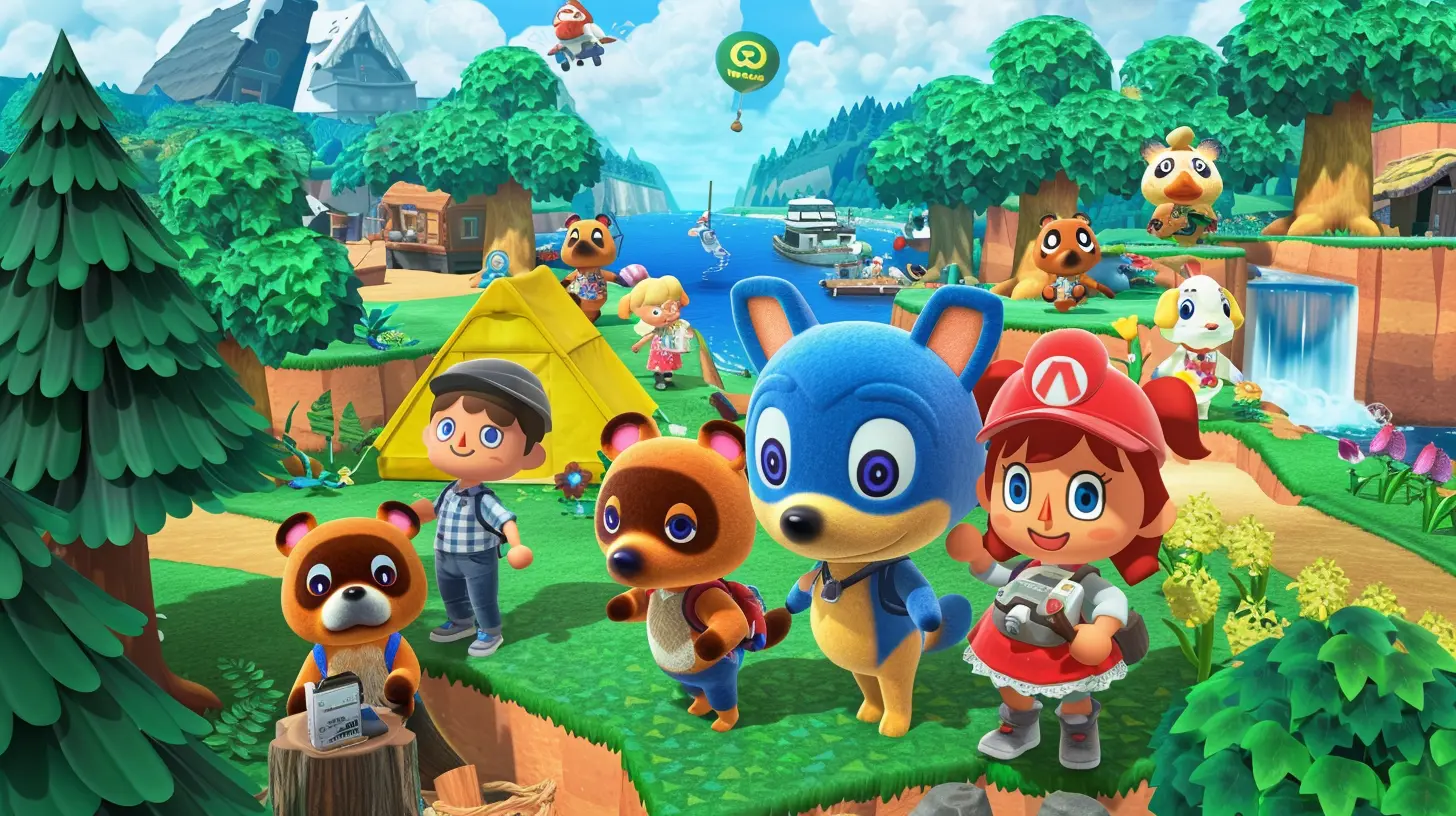
The Power of Community
People say Animal Crossing is a single-player game. Technically, yeah. But look closer—it’s anything but lonely.From trading turnips on Reddit to arranging dream address tours on Twitter, gamers connected in ways that felt deeply human. Remember when folks started hosting weddings, birthday parties, or even graduation ceremonies on their islands? Heartwarming stuff.
Turnip Stocks & Social Bonds
Let’s talk turnips for a sec. The Stalk Market (yes, it’s a thing) introduced a surprisingly intense—but hilarious—economic system. Players checked prices like they were on Wall Street. Whole Discord communities popped up just to share the best turnip prices, helping complete strangers profit.It turned into something bigger than a game feature. It was resource-sharing, teamwork, and community-building wrapped in an adorable vegetable metaphor.
Personalization at Its Peak
Every island? Completely different. That’s no accident. Animal Crossing gives players tools to create a space that feels like theirs. You can:- Design pathways, clothes, and furniture
- Terraform cliffs and rivers
- Curate your own museum with fossils, bugs, and art
And then there’s the villagers. Each one has a unique personality, hobbies, and quirks. Some became absolute icons. (I’m looking at you, Raymond and Marshal.)
As people customized landscapes and homes to reflect their personalities, islands became an extension of identity. That’s deeper than gameplay—that’s art.
The Game That Rewards Doing "Nothing"
In most games, idle time equals wasted time. Not in Animal Crossing.Here, you’re rewarded for walking slowly, talking to everyone, and making small progress over time. It's a masterclass in mindfulness. The game nudges you to pause, breathe, and appreciate the little things. Like catching a rare butterfly. Or that perfect sound when a balloon pops and drops a surprise present.
We’re talking about a game that sends you gentle letters in the mail. That offers you a Nook Miles bonus just for saying hi to your villagers. It’s wholesome, low-pressure, and strangely healing.
A Creator’s Playground
If you’re into design, Animal Crossing is a canvas with almost infinite possibilities. Artists recreated famous paintings. Fashion lovers designed outfits inspired by real-world brands. Architects went wild building island infrastructure. There are spooky islands, fairycore lands, Japanese zen gardens, and full sci-fi cityscapes out there.YouTube, TikTok, and Instagram blew up with AC content. Entire accounts were dedicated to showcasing island tours and creative builds. It gave players purpose and fueled inspiration. Even major brands like Gucci and Valentino hopped on board, creating custom collectibles in the game. Wild, right?
Animal Crossing in Pop Culture
The moment Animal Crossing crossed into pop culture, it wasn't subtle. Celebrities played it. Talk shows interviewed guests through the game (shoutout to Animal Talking with Gary Whitta). Politicians like Alexandria Ocasio-Cortez visited players' islands. Even Joe Biden’s campaign created an in-game island before the 2020 elections.Yeah. That happened.
When a game becomes a platform for expression, political messaging, and fashion statements—you know it’s something special. Animal Crossing bridged the gap between gaming nerds and mainstream culture, and it did it with charm.
Soft Aesthetics, Big Impact
The visual design of Animal Crossing is gentle and inviting. There are no dark, aggressive tones. No cluttered chaos. Just soft colors, cozy textures, and peaceful soundscapes.Honestly, playing AC is like wrapping yourself in a warm, digital blanket. Even the music adjusts based on the time of the day, subtly matching your mood. That attention to detail? Pure Nintendo magic.
In a world where everything fights for your attention with bells and whistles, Animal Crossing whispers, “Hey. You’re doing just fine.”
It’s More Than a Game—It’s a Lifestyle
For millions, AC became part of their daily routine. Wake up. Water flowers. Shake trees. Check the shop. It became a digital equivalent of sipping your morning coffee.And that consistency, that gentle rhythm—it helped fight off the mental fog a lot of us felt during lockdown. People built rituals around it. And in doing so, the game became almost meditative.
Some folks even said it helped with anxiety and depression. And you know what? That makes sense. When anxiety thrives on unpredictability, having a safe and predictable game to check into every day can feel like therapy.
The Future of Animal Crossing
So, where do we go from here?While Nintendo hasn’t announced a new title at the time of writing this, we all know it’s coming. Expectations are sky-high, but if there’s one thing this franchise has shown us—it doesn’t need to reinvent itself dramatically. It just needs to stay true.
Keep the charm. Keep the heart. Keep the community. And maybe sprinkle in some new mechanics. Maybe more villager interactivity? Maybe pets for your pets? We can dream.
Final Thoughts
Animal Crossing didn’t become a cultural phenomenon by accident. It combined timing, simplicity, charm, and community in a way that resonated deeply with people all over the world.It’s not just a game—it’s a safe space. A love letter to slowing down. A reminder that small, quiet joys are just as powerful as loud, explosive ones. And sometimes, catching a virtual fish with your best friend beats any leaderboard victory.
So, the next time someone asks why Animal Crossing blew up, just tell them this:
Because it gave us peace when we needed it most.
all images in this post were generated using AI tools
Category:
Nintendo GamesAuthor:

Francesca West
Discussion
rate this article
1 comments
Amos Edwards
Animal Crossing's charm lies in its simple, relatable gameplay and the sense of community it fosters. During tough times, it provided an escape and connection we all craved.
October 5, 2025 at 4:19 AM

Francesca West
Absolutely! Animal Crossing's relatable gameplay and sense of community truly resonated during challenging times, offering a much-needed escape and connection for many.
